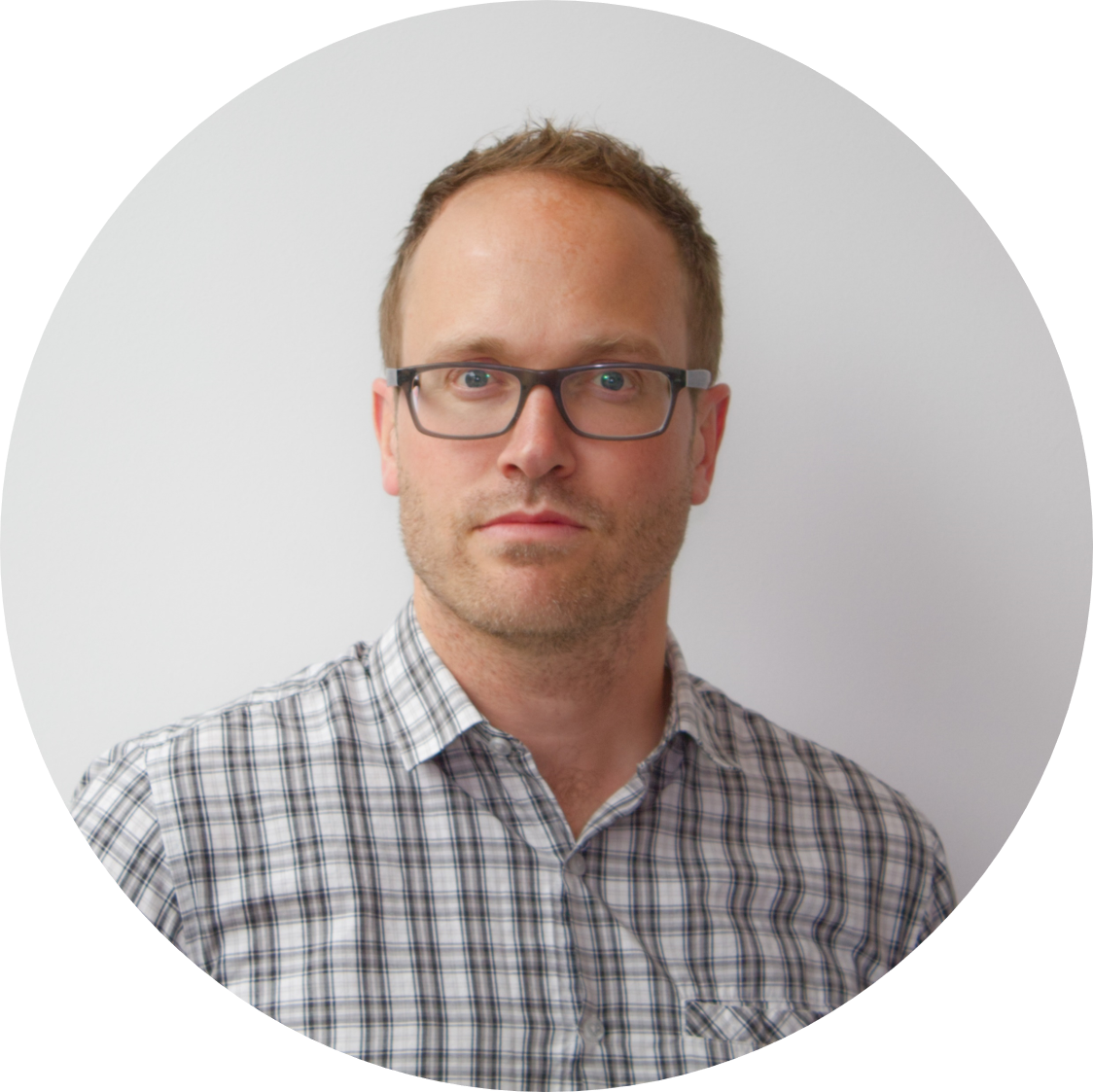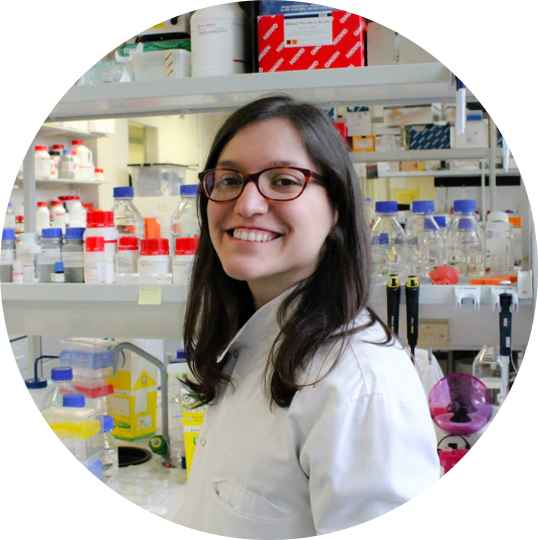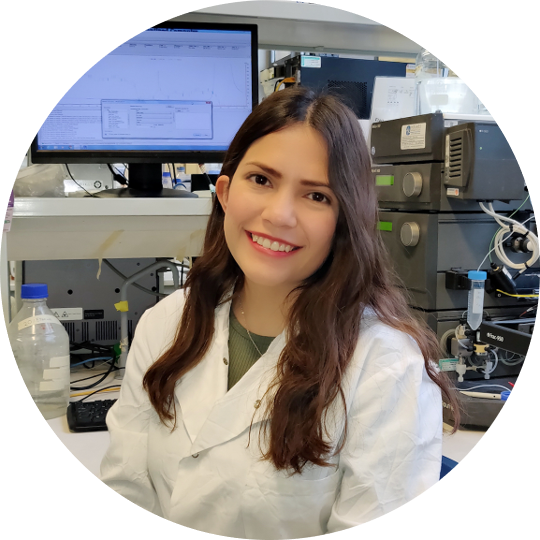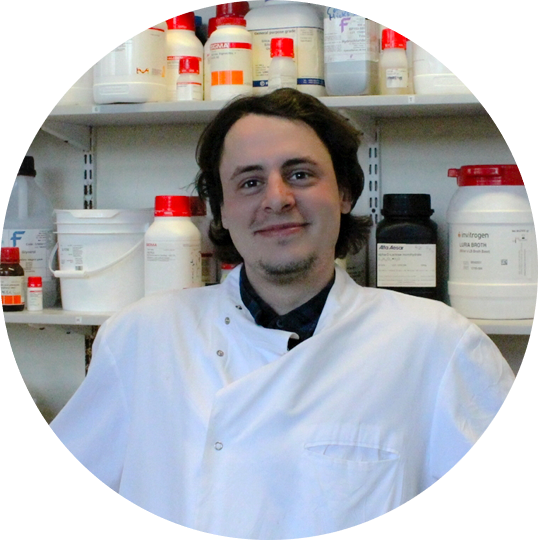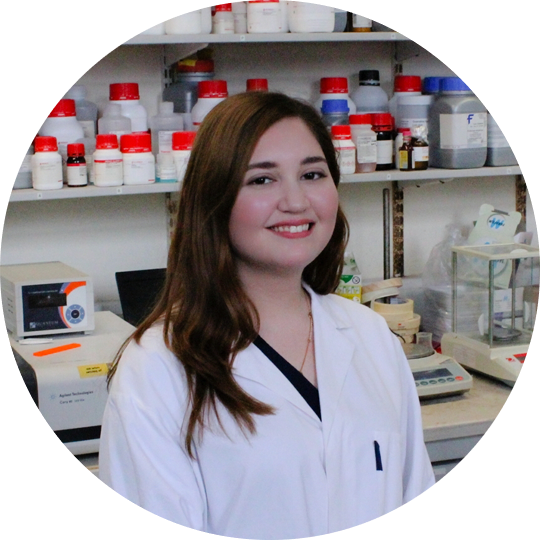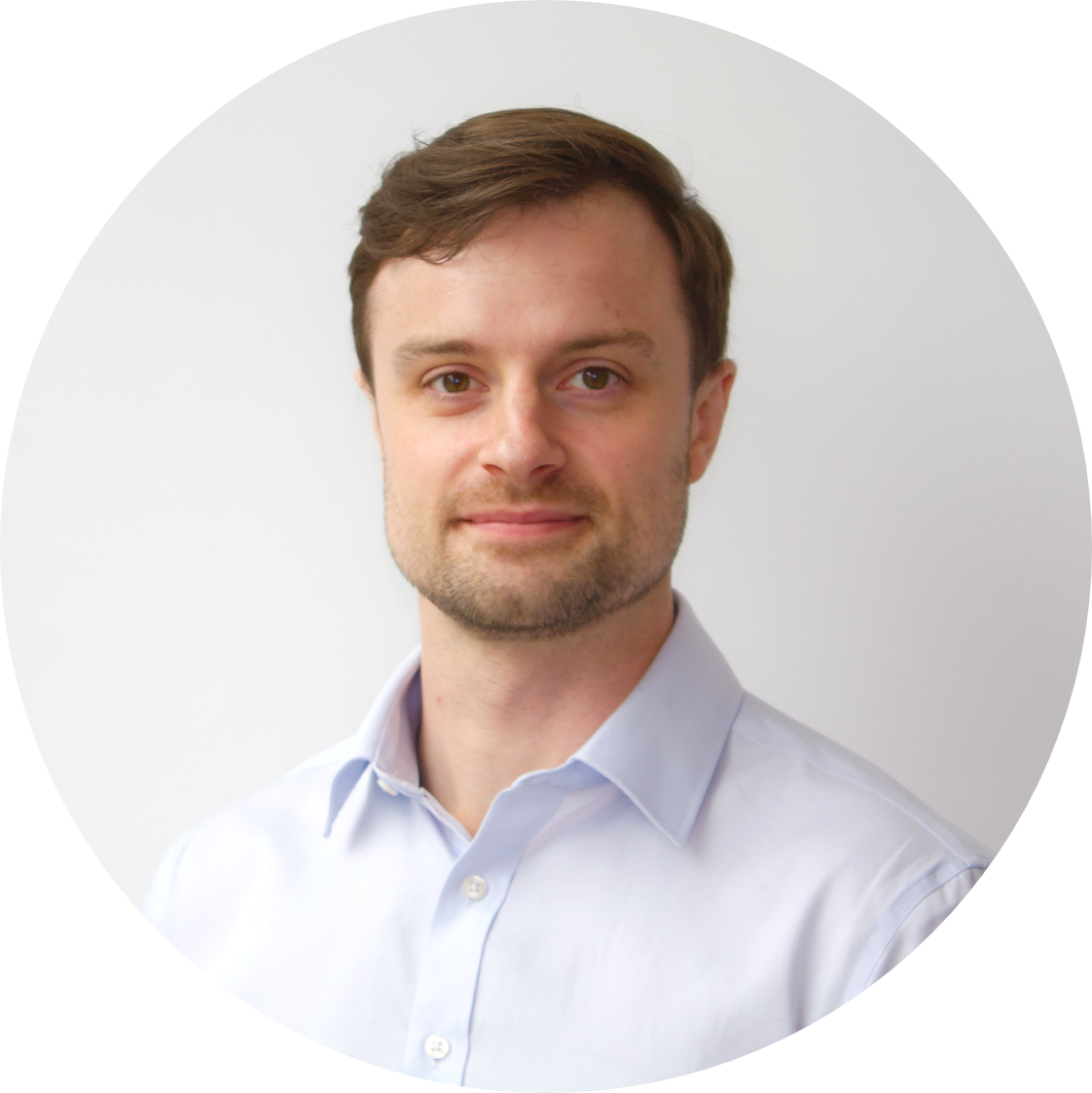
Cytoseek
CytoSeek is a spin-out from the Perriman Research Group.
Based on novel cell membrane augmentation technology that has enabled to add new functionalities to cell therapies including tissue specific targeting and enhanced cell survivability.
I worked in the Perriman Group from September 2014 – March 2018. My PhD, entitled 'Constructs for the detoxification of organophosphorous compounds', involved developing the first artificial membrane-binding enzymes. Using OpdA, an OP-degrading enzyme that evolved in soil bacteria, I was able to generate enzymatically-active constructs that spontaneously bound to cell membranes. I now work for CytoSeek, a spin-out from the Perriman group that is commercialising artificial membrane-binding protein technology to address unmet needs in cell-therapy treatments for cancers. For more information, visit cytoseek.uk.
Trained as a Stem Cell Biologist, I joined CytoSeek and its mission to improve cell therapies by using a unique cell membrane augmentation technology. My aim is to develop in vitro and in vivo assays to assess the efficacy of our therapeutic in the fields of oncology and regenerative medicine.
As a PhD student in the Perriman Lab I was primarily interested in augmenting the functionality of stem cells without modifying their genomes; particularly focusing on homing to damaged heart tissue following myocardial infarction. I accomplished this by constructing an artificial membrane binding molecule which incorporated a repurposed bacterial adhesion molecule. This novel construct bound to immobilized fibronectin with greater specificity and affinity than a comparable antibody, and demonstrated increased mesenchymal stem cell homing to cardiac tissue in a mouse model. This methodology paved the way for further experiments in the group using similar systems.
After completing my PhD research I joined Professor Perriman’s spin-out company Cytoseek as a founding member and now work towards commercialising the technology developed by myself and others in the academic group


